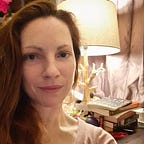Refusing to Grow Up has Benefits
When I was growing up, I thought that adults were smart, knew a lot, and generally were rather competent. I thought they had life kind of figured out, at least most of them. Now I know better: I’ll never really grow up and in many ways won’t deviate much from my childhood self. There is freedom and terror in knowing that there’s no magical transition from being a child to being adult, and actively refusing to grow up can be very positive.
First, the Negatives
On the down side, this means that we’re all kind of idiots in our ways. The same ways that we were goofing up when we were kids are likely to carry over for decades. Did you procrastinate as a kid? You’re likely still doing that, right?
It’s disappointing to me that I’ll never be smart in the way that I thought adults around me were. While I realize now that they were struggling to learn on a daily basis, too, I wish that we all had things a bit more figured out, as individuals and as society.
In so many ways I feel like a failure that surely must be because I haven’t quite grown up. I’m in my 30s, though. My failures aren’t because I’m not competent enough or adult enough. They’re because I’m human. Messing things up is a side effect of living.
Now, the Benefits
On the positive side, never really growing up means that we can embrace our limitations in a freeing way, if we choose to.
I don’t have to take myself seriously and always try to act mature. Like I tell my daughter, there is a time and place for all kinds of behavior. I may not be able to play hide-and-seek in an office setting when I need to focus on payable work, but I can play with my daughter on the playground, running around and even getting on the swings. neener neener to other adults who won’t join in the play. Are they just trying to act mature, or are they just scared?
Never feeling like a completely formed adult also lets me embrace the fact that I will not reach that level of intelligence I thought adults had. Instead, I can focus on lifelong learning, of trying to reach a goal that I know is ridiculous and unachievable, but it being that high a goal spurs me onward so that hopefully I never stop learning and getting better.
It’s Important for My Daughter that in Some Ways I Never Grow Up
If I truly take to heart the concept that none of us are adults in some ways, that we’re all struggling to be ourselves, to live as best we can, loving and screwing up, and trying hard but still making mistakes, perhaps I’ll have more patience with others and with myself. Perhaps a bit of grace will come out in my actions and in the way I treat others. If I can treat myself with acceptance and understanding, perhaps my daughter will see this, take it to heart, and be more accepting and think more positively of herself and her world as well.
I’m okay never growing up.
To celebrate adults channeling their inner child, consider these books:
Mr. Tiger Goes Wild by Peter Brown
An adorable book! Mr. Tiger is always proper, and he gets sick of it. This book discusses how it’s okay to go wild in some places, like the wilderness. Sometimes, too, society needs to change, and it’s empowering for kids to see the effect that Mr. Tiger has on his friends and city.
Don’t Be Silly, Mrs. Millie! by Judy Cox
By teasing her students and saying silly things, Mrs. Millie makes them laugh while learning. A lovely example of how adults can be silly and engage more deeply with kids as a result.
The Book with No Pictures by B. J. Novak
I dare you to read this book without laughing. The author is playing a joke on the adult reading the page, and children love that. The book forces the reader to say very silly things and act a little ridiculous in the process. While reading you can show kids why you’re having to say such silly things by pointing at the words as you read. That should be an educational exercise along with the sheer hilarity of sharing the book.
This is a Moose by Richard T. Morris
The animals in this book don’t behave like normal animals in the wild. Instead, they’re astronauts, doctors, and lacrosse players. Revolting against what ‘should’ happen allows them to do the amazing things like go to the moon. Revolt against ‘should’!
For other book recommendations in the same age range as these items, please refer to Perfect for Preschool (Ages 2–5) and Excellent for Early Readers (Ages 6–9).
